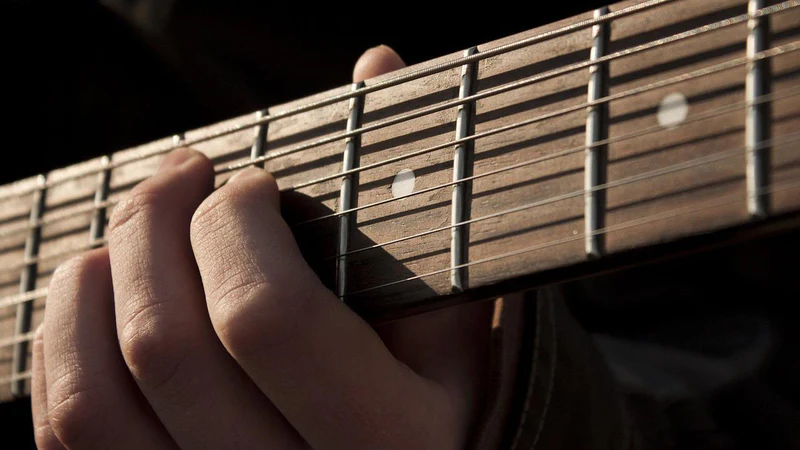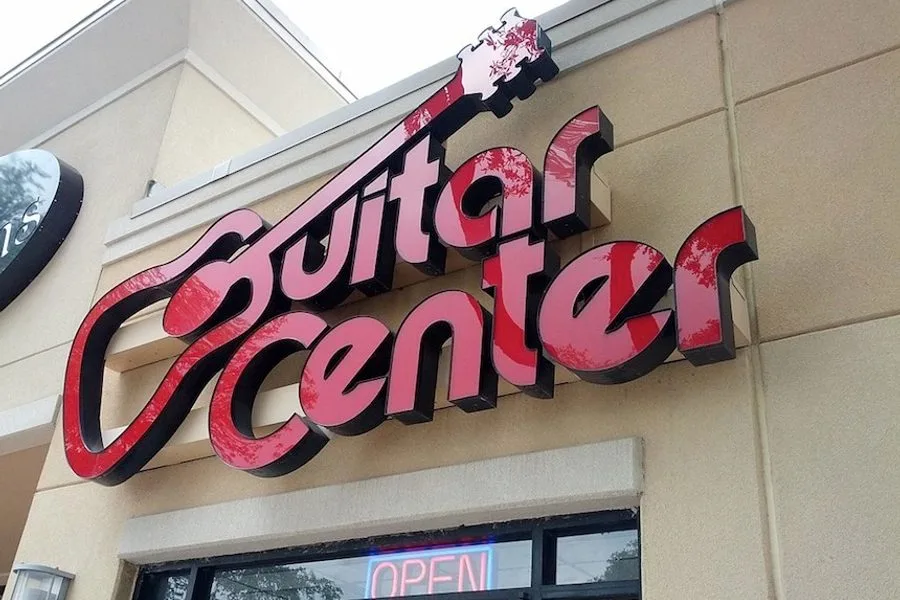Hey there, fellow musicians! Are you looking to sell your used gear at Guitar Center but wondering how much they’ll pay for it? As someone who has been in the music industry for years, I understand the importance of getting a fair price for your equipment. And let’s be honest, we all want to get the most bang for our buck. That’s why I did some research and spoke with experts to give you all the details on how much Guitar Center pays for used gear. So grab your guitar and let’s dive in!
So, how much does guitar center pay for used gear?
The amount that Guitar Center pays for used gear can vary depending on the condition and demand for the specific item. Generally, they will offer around 50% of the original retail price for well-maintained gear in high demand. However, if the item is rare or in high demand, they may offer a higher percentage. It’s always best to research similar items and their prices before selling to ensure you are getting a fair deal.
Additionally, Guitar Center also offers trade-in options where you can receive store credit towards new gear instead of cash. Overall, it’s best to check with your local Guitar Center or use their online valuation tool to get an accurate estimate for your specific piece of used gear.
Understanding the Guitar Center Trade-In Process
The Guitar Center trade-in process is a handy scheme offered to music enthusiasts who wish to exchange their used instruments for store credit or cash. Say, you have an old guitar, keyboard, or drum set that’s collecting dust in the corner – this precious tool can become your gateway into acquiring a new instrument! When trading in at Guitar Center, the initial step involves bringing your used gear to any of its numerous stores located across America.
Knowledgeable staff members will then evaluate your musical piece based on several criteria such as current market value and condition. It’s crucial to remember that well-maintained pieces fetch higher returns; hence maintaining the pristine state of equipment remains paramount.
Now let’s delve deeper into what happens after evaluation: If you find the presented offer acceptable, you’ll receive payment immediately – either by check (if opting for cash) or store credit loaded onto a Guitar Center Gear Card.
- If checks aren’t really your thing, note that store credit comes with perks like no expiration date and unlimited redeemability on any product in-store or online.
- However, if you’re looking forward to buying fresh gear promptly after trade-in, it would be wiser to choose store credit since it generally amounts more than cash payments.
In every sense imaginable, trading in at Guitar Center is not just about exchanging equipments; rather it offers an exciting opportunity for growing musicians eager to explore new territories without shelling out heaps of money!
Breaking Down What Factors Determine Pay for Used Gear at Guitar Center
Breaking down the factors that determine how much you might get for your used gear at Guitar Center is a bit like trying to decode a secret language. However, let’s make it simple and straightforward. First and foremost, the condition of your equipment plays an enormous role in its resale value. A guitar with scratches, dents or broken parts won’t fetch as much cash as something well-kept and pristine. The quality of the instrument matters too; higher-end brands can command top dollar even if they’re secondhand.
Next on the list are things like market demand and rarity. If you’ve got something unique or hard-to-find, Guitar Center might be willing to pay extra for it. Here’s how it breaks down:
- Market Demand: Popular models always sell quickly, so they’ll often offer more money for these items.
- Rarity: Rare instruments can go either way – sometimes being one-of-a-kind increases their value dramatically; other times not so much depending on who’s looking to buy.
Remember though: selling used gear isn’t just about cashing in; it’s also an opportunity to clear out clutter and possibly upgrade your kit with some new toys from Guitar Center’s vast inventory! So don’t fret (pun intended) when getting rid of old gear – think about what kind of music adventure lies ahead instead.
Read also: how much does guitar center pay for used gear
How to Get the Best Price When Selling Your Used Gear at Guitar Center
Prepare to Sell Your Gear
First things first, you’ll want to prepare your gear for sale. Just like selling a used car or home, presentation is key and could greatly impact the price that Guitar Center will offer.
- Clean it: Grab a soft cloth and some cleaner (appropriate for the material of your gear). Wipe down every part thoroughly.
- Repair it: If there are any minor issues with your gear – such as broken strings on a guitar – repair them before taking it in.
- Tune it: Ensure that instruments are perfectly tuned. This not only demonstrates they’re still functional but also allows potential buyers to test play them efficiently.
A well-prepped piece of equipment can fetch significantly more than one which appears neglected.
Negotiate Strategically
Now that your gear is in top shape, let’s focus on negotiation tactics. Start by doing some research online about what similar used items sell for at Guitar Center or other comparable platforms. Information is power; knowing the ballpark figure gives you an upper hand when negotiating.
- If possible, aim higher initially without being unrealistic. This provides a buffer during negotiations, allowing room for compromise while still securing a decent paycheck.
Note down all exceptional features about your item – why should someone opt for yours over others? A great story attached to the instrument can make all the difference too! Lastly, be patient – remember that good deals aren’t always instantaneous.

Exploring Customer Experiences: Personal Accounts of Selling Used Gear to Guitar Center
The initial feelings that tagged along when I decided to sell my used guitar gear to Guitar Center were filled with a nervous jumble of excitement and uncertainty. I had become attached to my Fender Stratocaster; it was like selling a dear friend, so many memories tied in with every chord played on its strings. However, the entire process turned out to be simpler than I’d imagined. The staff greeted me warmly as soon as I walked through their doors, creating an inviting atmosphere that eased most of my uneasiness.
- The appraisal process:
Before any transaction could take place, there was the key step – evaluation or assessment of the instrument’s condition. An expert from Guitar Center meticulously examined every inch of my beloved Fender for dings, scratches or any signs of damage while also testing its sound quality and functionality. Despite being attached sentimentally to this musical device, he assured me they would value it at its worth based on market standards and not undervalue it because it is used.
Guitar Center’s transparency throughout this process helped build trust immediately- none of those hidden secrets you dread when selling something valuable.
- The final payment:
When we finally got down to discussing price after the examination phase had passed successfully without major issues cropping up about maintenance or lack thereof on my part – relief washed over me knowing how smooth everything has been thus far.
After agreeing upon a fair price (which was instantly paid), walking away from Guitar Center left me feeling satisfied instead regretful – surely a testament to their customer-centered approach! Selling used gear doesn’t have always have negative experiences associated if one approaches establishments like Guitar center who follow ethical business practices.
You may also like: types of yamaha piano
Maximizing Profit and Satisfaction when Trading in With Guitar Center
Maximizing Profit
Trading in with Guitar Center could potentially be a fun adventure. Just imagine, you wander into the store with your old instrument and come out holding the music maker of your dreams! But to make this dreamy scenario even better, there are ways you can secure yourself the best deal possible. Here’s where smart trading strategies come into play.
- Know what you have: Do extensive research on what type of equipment or instrument you’re planning to trade in. Understand its value based on factors such as brand, model, age, condition and market demand.
- Maintain your gear: Keep all your music equipment well-maintained. A clean guitar without any scratches has more trade-in value than a worn-out one.
- Negotiate: Don’t shy away from negotiating at Guitar Center. Be polite but firm and remember: knowledge is power!
Satisfaction Guaranteed
The other part of successful trading involves ensuring that not only do we maximize our profits but also enhance our overall satisfaction from this process too – because isn’t it partly about enjoyment? That feeling when we walk out happily with an upgrade! To achieve this:
- Select wisely:We must choose something that truly resonates with us rather than just jumping for the most expensive piece.
- Patience pays off:We need to be patient enough to wait for sales or special deals which Guitar Center often provides, this way we’ll get even more bang for our buck!
- Create connections: A great way to feel satisfied is by developing relationships within the store itself; workers at Guitar Center are usually passionate musicians who could potentially provide us with useful tips and advice!
Whether we’re trading for the first time or are seasoned pros, following these strategies will help us get the most out of our trades at Guitar Center, both in terms of profit and satisfaction.

